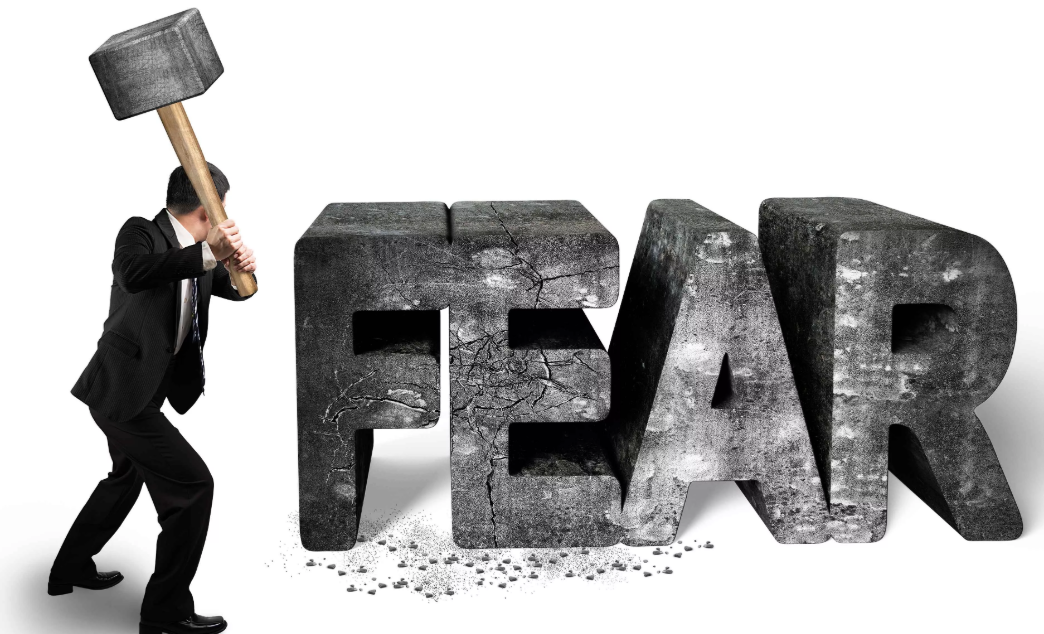Summertime is my favorite time of the year. To me, summer is space. Space to play outdoors and refill your cup after a long winter. Space to revive your creativity and passion for the work you do. Space to clean up your caseload and prepare for the fall giving season. And space to clean out a few things in your own mindset that just might be getting in your way.
Creating space to clear out the things that no longer serve you, in life and in work, is so beneficial. As I was thinking about some of the things I’ve heard on recent live calls and seen in our Community Hub, I realized something that you, and a number of your colleagues, may benefit from clearing out.
Today, I want to talk about clearing out the false narratives that are holding you back from asking your donor for an increase in giving or a transformative gift.
Take a few moments this week to look honestly at your mindset around asking amounts that may be revolutionary… or a little uncomfortable. I use the term “revolutionary” because honestly, playing it safe with asking amounts is soul-sucking for you and your donors.
Let me explain. Anytime you are functioning from fear – fear of being too much, asking too much, offending, and thinking you have to play it safe – your creativity, your joy, and your cause will be harmed. And your donors will feel that. More to come on that note.
Now, I do want to take a moment to clearly state I’m NOT talking about treating donors like ATMs and chasing the money at all costs. This is not about asking for big gifts when you have no relationship, don’t know their passion and interests, have not told them repeatedly how they have made a difference, and just show up and ask.
If you have qualified your donors, learned what they care about, and shared their impact over time, but in all their years of giving, you have never asked them for a significant gift, then this is your opportunity to break out of the mindset that is keeping you from doing that. Honestly, not providing opportunities for them to give more is disrespectful and diminishing. When you don’t share additional opportunities to give with these donors, you steal their joy because giving significantly and seeing its impact is a spiritual experience. Giving substantially is more meaningful and satisfies the soul.
So, let’s break down some of the thinking that might get in your way. Here are a few things I commonly hear when talking to fundraisers:
- “I should just be thankful they have been giving consistently all these years. I don’t want to offend them because then they may go away.”
- “The $50,000 gift they gave last year is a really big gift for us. I should be thankful and not ask for more.”
- “I’ve never had money or been able to give significantly myself, so how do I have a right to ask them to do so?”
- “We have gotten to know each other well over the years and it feels weird to ask for a big gift when they feel like my friend.”
- “I know some of the challenges they’re experiencing personally and professionally, and it feels selfish to ask for a big gift.”
- “I’m afraid they will say no, and sometimes I take that personally, like I failed.”
- “I don’t feel skilled in having a conversation with a donor about giving, and I’m sure I will mess it up and lose them completely.”
Take a moment to write down all of the thoughts, beliefs, and assumptions that block you from asking for bigger gifts.
Ultimately, while these feelings are not uncommon, they are, interestingly, all about you and not about the donor. Your fear that they will get angry, be disappointed in you, give less, or go away is really about how YOU feel, not how the donor might respond. When you think you know what is best, that you are protecting them because you know their challenges, you are making it about you.
You are not alone in doing this. I’ve done it and so has probably every fundraiser out there. And we’ve worked with thousands of fundraisers over the last decade and have never had a situation where the donor was offended when asked to give more or to give significantly. But what we have had are donors who felt upset and even went away because a fundraiser asked for too little.
If one mental block for you is that you don’t feel skilled in asking for a gift or an increase or a truly major gift, trust me, that’s okay. In my next blog, I’ll dive into how you actually do this and what it sounds like, and I’ll share some tips to support you as you build and strengthen that skill set. Head over here to check out part two!
Karen
![Are Your Asking Amounts Soul-Sucking? Vector illustration of a man in a suit lifting up a large coin to reach for a small coin that sits underneath. [Are Your Asking Amounts Soul-Sucking?]](https://veritusgroup.com/wp-content/uploads/2023/06/AdobeStock_481783289-scaled.jpeg)

![A donor is showing her membership card. Moving Out of a Membership Mindset [Podcast Episode]](https://veritusgroup.com/wp-content/uploads/2022/08/Podcast-Episode-Blog-Post-Header-Image_081722.png)



Good article! I concur with your premise. That “if” is the real issue. Qualification can be different for each entity and each donor or prospect. Thanks for the thoughts.
We completely agree — qualification is essential.
Thanks for reading, Paul!